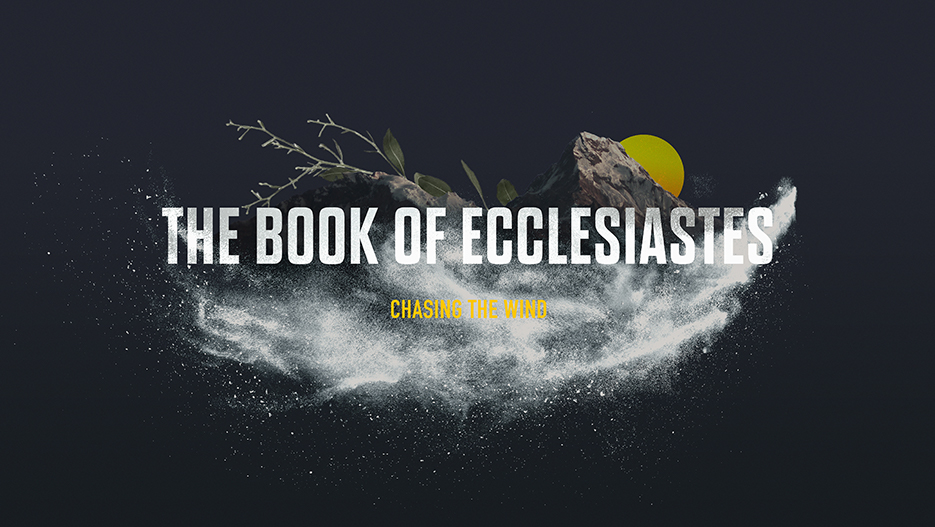In this Lenten Study, we will be discussing the first half of Ecclesiastes. The theme of Ecclesiastes is that the things of this world are no more substantive than a vapor that soon disappears and is forgotten. The writer reminds us that regardless of how wise or righteous we are, death comes for us all. During Lent, as we walk with Jesus towards Jerusalem and ultimately Golgotha, we are faced with the question of whether death also comes for God’s Wisdom incarnate who exhibits the perfect Righteousness of God. For if death comes for Him, then all that we do is in vain. Therefore, Ecclesiastes compels us, like the male disciples on Easter morning, to run to see if the rumor of the empty grave and the defeat of death itself is true. For the background of this study, I have used the JPS Bible Commentary: Ecclesiastes by Michael Fox, The Myth of Sisyphus by Albert Camus, and The Resurrection of the Son of God (Ch. 3) by N.T. Wright. This Lenten Study covers five to six weeks.
(Lent 2019)
Ecclesiastes – A Lenten Study
This is my favorite book of the Old Testament, and next to the writings of John, my favorite book in all of Scripture. Within Ecclesiastes, we are given insight into one person’s struggle to make sense of reality.
Only once we realize that all of our thoughts, all of our theologies, all of our world view, and even our very existence is vanity and futile and pointless and meaningless can we begin to walk with Jesus.
The Speaker begins his teaching with the recognition of the Absurd – life makes no coherent sense, life is not fair, and life is not just. For the Speaker and for us, therefore, the question arises as to how he/we respond to this recognition. This is the story of Lent.
I leave Sisyphus at the foot of the mountain! One always finds one’s burden again. But Sisyphus teaches the higher fidelity that negates the gods and raises rocks. He too concludes that all is well. – Albert Camus
But Christianly understood death is by no means the last thing of all, hence it is only a little event within that which is all, an eternal life. – Sören Kierkegaard
There is an occasion for everything, and a time for every activity under heaven:
A time to give birth and a time to die;
A time to plant and a time to uproot;
A time to kill and a time to heal;
A time to tear down and a time to build;
A time to…
The Speaker knows wisdom and righteousness but also knows that death has the final say over all. As Paul reminds us, if there is no resurrection of the dead and if Christ has not been raised then our faith is pure vanity. 1 Cor. 15:14.
The Speaker finds great value in companionship. Two are better than one in their endeavors and for support, warmth, and protection. In vv.9-12, the Speaker extols the goodness of having a companion.
When the Speaker addresses oppression, he simply describes the situation with no contemporaneous recognition of any role that he could play to address the oppression that he sees.
The Speaker is concerned with our making promises to God (i.e. vows) that we cannot satisfy. It is better not to vow at all than to vow and not fulfill. Thus the Speaker tells us that vows are not to be taken lightly or inadvisably.
In our striving to obtain whatever we believe will give contentment and happiness, we will lose that contentment and happiness. We will never obtain enough to bring us the happiness that we ultimately seek.
Years after completing our study on Ecclesiastes, I ran across a blog post by Richard Beck at Experimental Theology concerning how Ecclesiastes fits within the Hebrew canon. This post is reproduced here.


